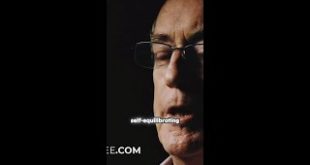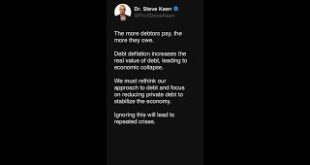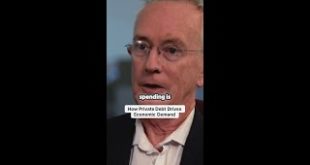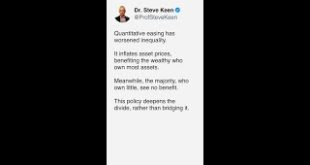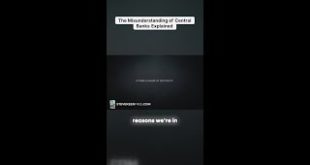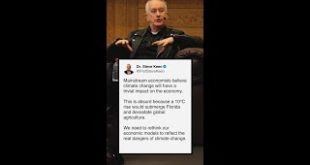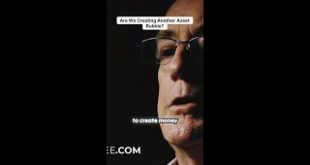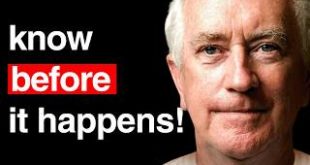Main Street Gets Left Behind.
Read More »Debt Payment: A Path to Collapse
The more debtors pay, the more they owe. This isn't just a catchy phrase. It's a harsh reality. Imagine trying to fill a bucket with holes. You pour in water, but it keeps leaking out. That's what happens when debtors try to pay off their debts in a deflationary environment. Each dollar they pay back becomes worth more. So, while they might reduce the number of dollars owed, the value of what remains skyrockets. It's like running on a treadmill set to a steep incline. You...
Read More »Private Debt Feeds Economic Collapse.
Private Debt Feeds Economic Collapse.
Read More »QE: The Inequality Machine
Quantitative easing has worsened inequality. Think of it like pouring water into a glass. If the glass is already full, the water spills over. The wealthy hold most of the glass. They benefit from the overflow. The rest of us? We’re left with dry cups. This isn’t just a metaphor; it’s reality. When central banks pump money into the economy, they inflate asset prices. Stocks, real estate, luxury items—these soar. Who owns these assets? The rich. The majority,...
Read More »Mainstream Economics Ignores Credit’s Role.
Mainstream Economics Ignores Credit's Role.
Read More »Rethink Climate Change’s Economic Impact
Mainstream economists believe climate change will have a trivial impact on the economy. This is a common misconception. It’s like saying a small leak in a dam won’t matter because the water level is still low. But what happens when that leak becomes a flood? A 10°C rise in temperature would submerge Florida. It would devastate agriculture worldwide. Ignoring these facts is like ignoring a fire in a crowded theater. You might think it’s just a small flame....
Read More »Debt Relief Could Have Changed Everything.
Debt Relief Could Have Changed Everything.
Read More »Ignore Debt, Predict Crisis!
Mainstream economics has a blind spot. It ignores private debt. This oversight is like trying to navigate a ship without a compass. You might think you're on course, but the reality is you're lost at sea. Credit is the lifeblood of the economy. It fuels growth and drives performance. When we overlook it, we miss the crucial factors that determine economic health. Take a look at the relationship between credit and unemployment. From 1990 to 2014, a staggering correlation...
Read More »Top Economist Proves Financial Crisis In 7 Minutes
Predict Crisis before it happens - Get Ravel for free here: patreon.com/ravelation Engineers, Finance, and IT Pros: Learn 50+ years of Real Economics in only 7 Weeks. Weekly with me. Learn more: apply.stevekeenfree.com Join ~10,000 others in downloading my free 'Funny Money' Bundle (2 books, worth $60): new.stevekeenfree.com -- Who is Dr. Steve Keen? Dr. Steve Keen is an influential economist who has dedicated over 50 years to challenging mainstream economic theories. Since his days as...
Read More »Next Fed Chair’s Game-Changing Vision.
Next Fed Chair's Game-Changing Vision.
Read More » Steve Keen’s Debt Watch
Steve Keen’s Debt Watch

